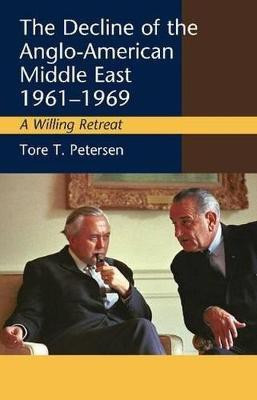Decline of the Anglo-American Middle East, 1961-1969(English, Paperback, Petersen Tore T.)
Quick Overview
Product Price Comparison
Discusses Anglo-American policy in the Middle East under Kennedy and Johnson, as well as under British Conservative and Labour governments; Provides a historical background on the Anglo-American Middle East for the 1950s; Analyses Western policy toward Egyptian President Gamal Abdul Nasser, and toward the Arabian Peninsula and the Persian Gulf. The author provides an extensive study of the common British and American interest in the Middle East (hence the term Anglo-American Middle East) under Kennedy and Johnson. Contrary to recent scholarly opinion, the author argues that the loss of influence to the Soviet Union and Arab radicalism in the Middle East was not the result of lack of power but lack of will. Britain, during the period of Harold Wilson's Labour government (1964-1970) withdrew from its Middle Eastern bases for ideological reasons, namely a distaste for imperialism and colonialism. The United States, while placing great store in a continued British presence east of Suez, was unable or unwilling to prevent the British withdrawal. And as the British withdrawal gathered momentum, American disinterest toward the Middle East increased.


